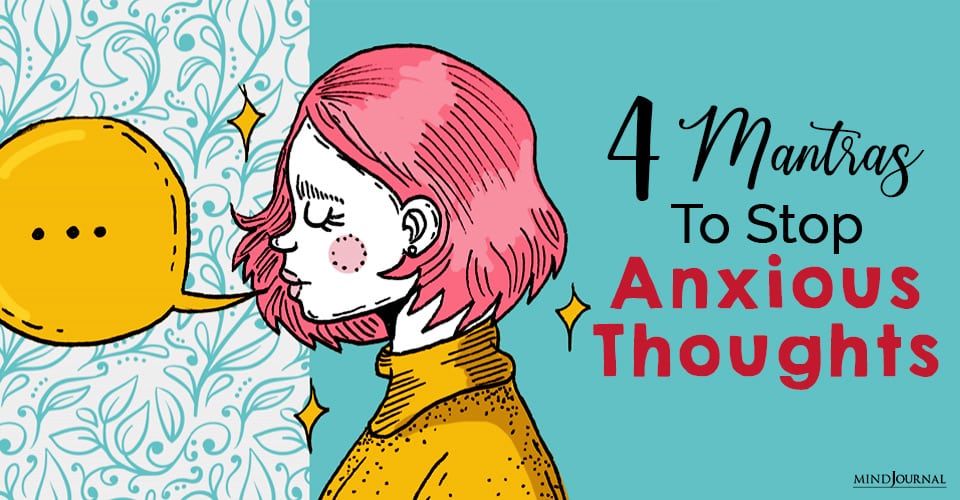Written by: Hilary Jacobs Hendel, LCSW, author of It’s Not Always Depression
Anxiety and the alarming thoughts our anxiety conjures are normal to experience, especially under stressful and challenging times like now. But anxiety feels terrible so it’s good to have a few tools to calm an anxious nervous system. Speaking supportive words to ourselves can provide relief, much like a parent reassures a child.
Experiment with soothing self-talk with the following phrases. See if the words relax you, calm your beating heart, allow you to breathe a little deeper, or lower the tension in your muscles. Even tiny shifts are important and can bring a sense of mastery that you have some control over your nervous system—which you do!

Read Emotional Distress: 7 Signs You Are Feeling Mental Strain And What To Do
Here are the mantras I recommend:
1. “This Is Temporary.”
It’s true: This quarantine and virus won’t last forever. Humans can sustain stress for long periods of time. We are resilient. Remember, “This stress is temporary!” Say it again and again.
2. “Everything Is Going To Be OK.”
The future is unknown, not only now but always. But there is no sense in triggering our nervous system into states of panic. We can tell ourselves everything is going to be OK, and it most likely will be.
If you’re too much of a realist or a pessimist, you can modify this mantra to “Everything is probably going to be OK.” If that’s still hard for you to believe, try “If everything is not OK, I can handle it.” And that is true! Try out different versions and see what calms the anxiety in your body. (Click here for a gentle experiential exercise to practice being your own good parent.)

3. “One Day At A Time. One Hour At A Time. One Minute At A Time.”
When emotions run high, we can get overwhelmed. This is the time to slow way down. Remind yourself the only goal is to get through the next minute, hour, or day. Shift your focus to figuring out a pleasant and calming activity that you can do right now to get through a tough moment.
For example, recently I woke up feeling really anxious after having several calm days. I knew I was anxious because my heart was beating fast. I reminded myself that my goal was to “slow down and take it a minute at a time.” I read my list of state-changers, concrete activities that shift us out of anxiety and into states of calm, connection, confidence, and clarity.
Here’s what I did:
- Dedicated 5 minutes to grounding and breathing.
- Vacuumed the house.
- Made a cup of tea.
- Exercised.
- Took a very hot bath.
- Wrote.
It took a few hours, but eventually, I started to feel a bit better. If none of those methods had worked, I would’ve told myself, “Hang in there! Tomorrow is a new day, and you will probably feel better in the morning.”
4. “Just Because I Feel Anxious At This Moment Doesn’t Mean In Reality Things Are Worse Than The Moment Before.”
Anxiety has a funny way of generating catastrophic thoughts. When you are very anxious, it’s important to pause and notice your thoughts. If you think the world is ending or you’ll never be happy again or you’ve ruined your life, notice that and then remind yourself it’s just a feeling or it’s just a worry. It doesn’t mean it is true.
Read 13 Characteristics Of A Mentally Healthy Person
The way we talk to ourselves matters and affects how we feel and think. I hope you will try some of these mantras and see if they offer any relief. If not, you can at least feel good about the effort you made to help yourself. Working with anxiety and the emotions that underlie anxiety is a lifelong practice. The idea is to get into an experimental state of mind and have a wide variety of tools, like mantras, state-changers, and the Change Triangle, at your disposal. It’s about practice, not perfection.
For free resources on emotions, visit hilaryjacobshendel.com
Please share this article with anyone who you may think will find it valuable and helpful.
Originally appeared on: Psychology Today Republished with permission











Leave a Reply